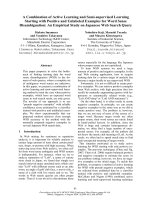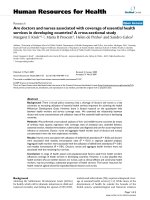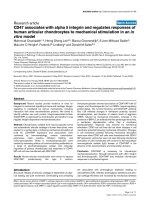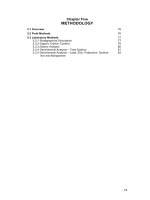Lecture Web technology and online services: Lesson 5.2 - Advanced PHP
Bạn đang xem bản rút gọn của tài liệu. Xem và tải ngay bản đầy đủ của tài liệu tại đây (335.55 KB, 21 trang )
�������������������������������������������������������������������������������������������������������������������������������������������������������������������������������������������������������������������������������������������������������������������������������������������������������������������������������������������������������������������������������������������������������������������������������������������������������������������������������������������������������������������������������������������������������������������������������������������������������������������������������������������������������������������������������������������������������������������������������������������������������������������������������������������������������������������������������������������������������������������������������������������������������������������������������������������������������������������������������������������������������������������������������������������������������������������������������������������������������������������������������������������������������������������������������������������������������������������������������������������������������������������������������������������������������������������������������������������������������������������������������������������������������������������������������������������������������������������������������������������������������������������������������������������������������������������������������������������������������������������������������������������������������������������������������������������������������������������������������������������������������������������������������������������������������������������������������������������������������������������������������������������������������������������������������������������������������������������������������������������������������������������������������������������������������������������������������������������������������������������������������������������������������������������������������������������������������������������������������������������������������������������������������������������������������������������������������������������������������������������������������������������������������������������������������������������������������������������������������������������������������������������������������������������������������������������������������������������������������������������������������������������������������������������������������������������������������������������������������������������������������������������������������������������������������������������������������������������������������������������������������������������������������������������������������������������������������������������������������������������������������������������������������������������������������������������������������������������������������������������������������������������������������������������������������������������������������������������������������������������������������������������������������������������������������������������������������������������������������������������������������������������������������������������������������������������������������������������������������������������������������������������������������������������������������������������������������������������������������������������������������������������������������������������������������������������������������������������������������������������������������������������������������������������������������������������������������������������������������������������������������������������������������������������������������������������������������������������������������������������������������������������������������������������������������������������������������������������������������������������������������������������������������������������������������������������������������������������������������������������������������������������������������������������������������������������������������������������������������������������������������������������������������������������������������������������������������������������������������������������������������������������������������������������������������������������������������������������������������������������������������������������������������������������������������������������������������������������������������������������������������������������������������������������������������������������������������������������������������������������������������������������������������������������������������������������������������������������������������������������������������������������������������������������������������������������������������������������������������������������������������������������������������������������������������������������������������������������������������������������������������������������������������������������������������������������������������������������������������������������������������������������������������������������������������������������������������������������������������������������������������������������������������������������������������������������������������������������������������������������������������������������������������������������������������������������������������������������������������������������������������������������������������������������������������������������������������������������������������������������������������������������������������������������������������������������������������������������������������������������������������������������������������������������������������������������������������������������������������������������������������������������������������������������������������������������������������������������������������������������������������������������������������������������������������������������������������������������������������������������������������������������������������������������������������������������������������������������������������������������������������������������������������������������������������������������������������������������������������������������������������������������������������������������������������������������������������������������������������������������������������������������������������������������������������������������������������������������������������������������������������������������������������������������������������������������������������������������������������������������������������������������������������������������������������������������������������������������������������������������������������������������������������������������������������������������������������������������������������������������������������������������������������������������������������������������������������������������������������������������������������������������������������������������������������������������������������������������������������������������������������������������������������������������������������������������������������������������������������������������������������������������������������������������������������������������������������������������������������������������������������������������������������������������������������������������������������������������������������������������������������������������������������������������������������������������������������������������������������������������������������������������������������������������������������������������������������������������������������������������������������������������������������������������������������������������������������������������������������������������������������������������������������������������������������������������������������������������������������������������������������������������������������������������������������������������������������������������������������������������������������������������������������� another page. Thus, doing anything involving the same information across several
pages can sometimes be difficult.
• Sessions help solve this problem by maintaining data during a user’s visit, and can store data that can
be accessed from page to page in your site.
• You can use session variables for storing information (this is one way that a “shopping cart” function can
work for an online shop, for example).
• Servers keep track of users’ sessions by using a session identifier, which is generated by the server
when a session starts and is then used by the browser when it requests a page from the server. This
session ID can be sent through a cookie (the default behavior) or by passing the session ID in the URL
string.
• Sessions only store information temporarily, so if you need to preserve information, say, between visits
to the same site, you should likely consider a method such as using a cookie or a database to store
such information.
PHP sessions (cont.)
• To start a session, use the function session_start() at the beginning of your PHP script before you store or access any data. For
the session to work properly, this function needs to execute before any other header calls or other output is sent to the browser.
session_start();
?>
" /><html xmlns=" xml:lang="en" lang="en">
<head>
<title>Session example</title>
</head>
<body>
include_once ('object.php'); // Includes definition of the Person class
$_SESSION['hello'] = 'Hello world';
echo $_SESSION['hello'] . "
\n";
$_SESSION['one'] = 'one';
$_SESSION['two'] = 'two';
$me = new Person("Russ", 36, 2892700);
$_SESSION['name'] = $me->get_name();
echo "Testing " . $_SESSION['one'] .", " . $_SESSION['two'] . ", " . $me->get_number() . " . . .
\n";
?>
</body></html>
view the output page
Using session variables
• Once a session variable has been defined, you can access it from other pages.
session_start();
?>
" /><html xmlns=" xml:lang="en" lang="en">
<head>
<title>Session example 2</title>
</head>
<body>
echo "Welcome to a new page ". $_SESSION['name'] "!
\n";
echo "Hope you enjoy your stay!
";
?>
Back to regular HTML text...
</body>
</html>
view the output page
More on session variables
• You need to include a call to the session_start() function for each page on which you
want to access the session variables.
• A session will end once you quit the browser (unless you’ve set appropriate cookies that
will persist), or you can call the session_destroy() function. (Note, however, even after
calling the session_destroy() function, session variables are still available to the rest of
the currently executing PHP page.)
• The function session_unset() removes all session variables. If you want to remove one
variable, use the unset($var) function call.
• The default timeout for session files is 24 minutes. It’s possible to change this timeout.
Deleting all session variables
session_start();
?>
" /><html xmlns=" xml:lang="en" lang="en">
<head>
<title>Session example 3</title>
</head>
<body>
echo "Deleting all session variables using session_unset();
\n";
session_unset();
echo "Now the session variables are gone.
\n";
if (isset($_SESSION['name']))
{
echo $_SESSION['name'] . "
\n"; }
else
{
echo "Session variable is not here.";
}
?>
</body>
</html>
view the output page
Learning Outcomes
• A (very, very brief) introduction to objects in PHP. If you wish to use objects,
then many books on PHP include more information, and, of course, much
information is available online.
• Sessions are useful for persistence of variables across many webpages
without the need to submit information via forms.
21









